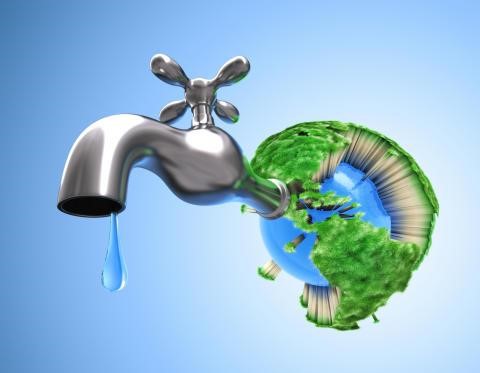If you’re a licensed plumber in Massachusetts, you know how important it is to uphold a standard of quality and trust with your customers. Residential, commercial or industrial, customers look to you to provide professional service and expert advice—especially when it comes to saving them time, money and energy.
Which is why now is a great opportunity to review to some common-sense suggestions you can share with your residential customers to help them conserve water and keep their systems running smoothly.
Check the water bill.
Does it seem high? There may be a few culprits around your home that are causing you to waste more water than you think. A leaky toilet or faucet can waste as much as ten gallons of water a day. Check out the USGS leak calculator to see how even the slightest dripping faucet can lead to gallons in wasted water.
Keep showers short and sweet.
Average shower time shouldn’t exceed ten minutes—any longer, and you’re wasting water. Switching to a low-flow showerhead can help save up to 15 gallons of water for the same ten-minute shower.
Flush that old toilet.
Toilets can account for up to 30% of total water use in an average household, more if there’s a leak. Worn toilet flappers are often the culprit. You can use dye tablets dropped into the tank to detect a leak. Install one of the newer model toilets and you’ll find that it uses nearly half of the water used by older models. Here’s more about low-flow toilets.
Upgrade appliances.
Today’s appliances are designed to outperform the old water guzzlers, especially if you look for Energy Star rated models. Choose a dishwasher with a light wash option or a washing machine that lets you adjust the water level to the size of the load.
Consider smart home devices.
Many homeowners use apps to remotely control home systems such as security, lights and heating/ac. There are several plumbing products that can also help with water conservation, from sensors that can not only detect but stop damaging water leaks to technology that can monitor how much water goes down the shower drain.
Remember the great outdoors.
You can save water outside in your garden, yard and even your driveway. In the garden, use a rain gauge to measure rainfall and reduce unnecessary watering. Did you know that the smallest irrigation or sprinkler system leaks can waste thousands of gallons a month? Make sure all handheld hose nozzles have an automatic shut off feature. Consider installing a rain barrel to collect rainwater for outdoor projects. And when you wash your car, use a bucket of water first, then save the hose for the final rinse.
Don’t wait for an emergency.
Trust a licensed plumber to inspect pipes and other systems indoors and out, to protect against water damage. They can also help you find ways to reduce your household’s water consumption and suggest changes and upgrades when needed.
Looking for continuing education courses in plumbing, or need to renew your license? It’s more important than ever to stay on top of your trade for your business and your customers. Online Massachusetts plumbing continuing education courses and certification make it easier than ever.

